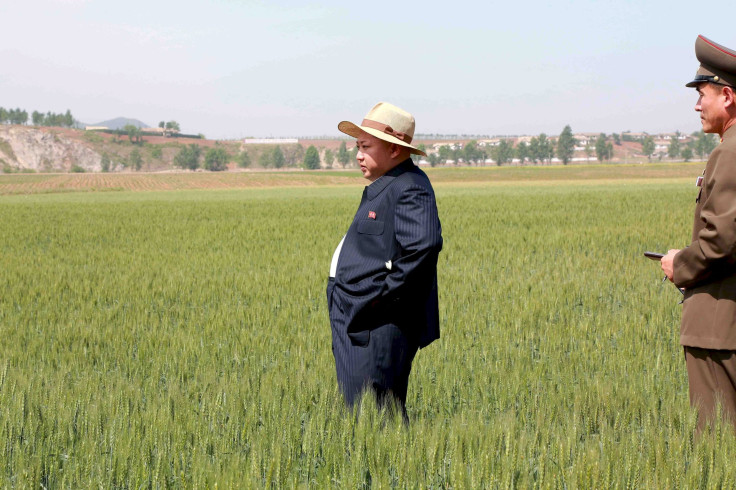North Korea Faces 'Worst Drought In 100 Years,' Water Level Of Reservoirs At Lowest

North Korea’s state media said Tuesday that the country currently faces the worst drought in a century, raising fears of food shortage. The country, which mostly relies on international food aid to meet its needs, has been recently facing troubles due to curbs on humanitarian workers by the government and a failing food distribution system.
North Korea’s state-run news agency KCNA said that the country’s main rice-growing provinces -- South Hwanghae, North Hwanghae, South Pyongan and South Hamgyong -- have been severely damaged due to the drought. The report added that over 30 percent of the paddy fields across the country were "parching up" as there was barely any rainfall in North and South Hwanghae provinces. Last week, the South Korean Unification Ministry said that the North’s crop production may fall by 20 percent if the shortage in rainfall continues until early July, Agence France Presse (AFP) reported.
"The worst drought in 100 years continues in the DPRK, causing great damage to its agricultural field," the KCNA report said, adding: "Water level of reservoirs stands at the lowest, while rivers and streams getting dry. Other crops are planted in paddy fields of drought-stricken areas as part of the campaign to reduce damage.”
North Korea has faced food shortages before; millions were killed in the famine that hit the country during mid-to-late 1990s. Since then, the North Korean government has allowed more privately organized farming, leading to an increased output, BBC reported.
“Farm managers reported receiving training in dry rice planting techniques and other measures that they were trying to conserve water," Linda Lewis of the American Friends Service Committee, a group that runs farm projects in North Korea, said, according to Reuters.
According to U.N. estimates, cited by AFP, food insecurity continues to plague nearly 70 percent of the country. Nations, including South Korea, regularly send aid to the North, where over one-third of the children under the age of five suffer from stunted growth due to poor nutrition. In April, the U.N. called for $111 million to fund humanitarian activities in food, nutrition, agriculture and sanitation, BBC reported.
© Copyright IBTimes 2025. All rights reserved.






















